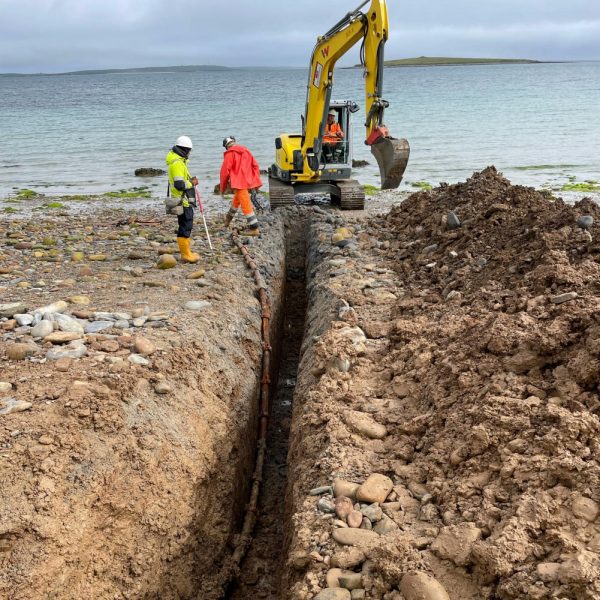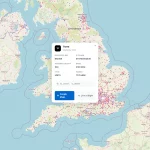University of Portsmouth Team Get £772k to Develop Subsea Cable Surveillance

A scientist from the University of Portsmouth’s School of Mathematics and Physics has successfully bid for £772,372 of funding from the Lloyd’s Register Foundation, which will be used to design a surveillance algorithm and maritime training programme to help identify, repair and reduce damage to undersea infrastructure (e.g. energy pipes and fibre optic internet cables).
Damage to submarine pipes and cables is, sadly, not uncommon and can take several weeks to repair when it occurs (sometimes longer). Most such incidents occur due to accidents by fishing trawlers, bad weather (usually only relevant near to cable landing sites), earthquakes, as well as ships accidentally dragging their anchor over a restricted area or sometimes even deliberate sabotage. Not to mention abrasion and general equipment failure etc.
A number of cable monitoring technologies are already being developed and tested to help tackle this, as well as to do other things like detecting vessels both on and under the ocean. The University of Portsmouth’s Professor Dylan Jones will now join this effort by leading a collaborative project, involving colleagues from universities in the Philippines and Brazil, which will attempt to develop a state-of-the-art monitoring and surveillance system.
Advertisement
The new system is intended to enable rapid incident detection, immediate incident response and longer-term repair to restore functionality. The system will incorporate weather and data about the state of the ocean to ensure that monitoring can be continued safely during severe weather.
Additionally, two case studies will be developed and the results used to increase and improve maritime stakeholder awareness and create effective training programmes for the maritime community.
Professor Jones said:
“This is a matter of growing concern worldwide. Loss of an energy supply or internet, for example, leading to interruption in services that are relied on to function daily and to do business which can have severe consequences for society and the economy. In extreme incidents, potentially it could be life-threatening if healthcare services are severely affected.”
The focus for this project will be undersea infrastructure safety in Brazil and the Philippines, two countries experiencing rising and differing issues, although it could also be used elsewhere. Overall, this project seems to go well beyond merely monitoring such infrastructure and is clearly aiming to set out “rigorous undersea infrastructure safety policy and practices“.
Maritime stakeholders that will benefit from the research include ship owners, operators and crews (from the fishing, energy support and freight sectors), maritime authorities and coastguards, port operators, oil and gas sector operators, environmental agencies, local and national governmental policy makers etc.
Advertisement
Each has a unique set of concerns, needs and preferences that must be identified and addressed in order to develop inclusive solutions to undersea infrastructure safety.
Mark is a professional technology writer, IT consultant and computer engineer from Dorset (England), he also founded ISPreview in 1999 and enjoys analysing the latest telecoms and broadband developments. Find me on X (Twitter), Mastodon, Facebook, BlueSky, Threads.net and Linkedin.
« Freely’s UK Broadband TV Streaming Service to Get 10 New Channels






















































I would be interested to know how this new algorithm will be different to the existing algorithms used by commercially available vessel AIS tracking and monitoring systems which are widely used to alert and warn all parties of a potential anchoring event near a subsea cable